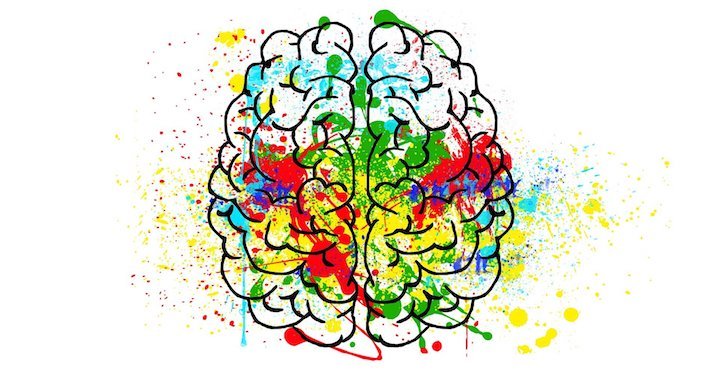
Mindfulness
“Fear keeps us focused on the past or worried about the future. If we can acknowledge our fear, we can realize that right now we are okay. Right now, today, we are still alive, and our bodies are working marvelously. Our eyes can still see the beautiful sky. Our ears can still hear the voices of our loved ones.”
— Thich Nhat Hanh
This is a quote by Tibetan Buddhist monk Thich Nhat Hanh, who is a prolific author and speaker devoted to bringing the many benefits of mindfulness practice to Western society. Mindfulness is the art of paying attention, in a very special and unique way. When we are mindful, we are in touch with the true nature of reality. We are attuned to both our inner and external world, and we are able to non judgmentally observe our experiences as they are, instead of how we think things should be. When we are mindful, we are truly in control of ourselves, as we are anchored in the present moment and no longer driven by our past traumas or future worries.
You can think about mindfulness as the ability to watch waves ebbing and flowing on the beach. Some waves are big, some are small. You don’t have to run into the cold water to make them go away or control them. In fact, doing this will leave you wet and exhausted. When you are in touch with the true nature of waves, you realize that they are temporary. They come and go without you having to do anything at all. The same can be said with your own inner experience. All too often, your mind has been programmed to run after the inner waves, whether it be frustration, worry, intrusive thoughts, painful feelings, loss, grief, or a myriad of other internal states you don’t like. It's only natural to attach to your inner experience by believing everything your mind tells you, or to go the other way and push down or suppress thoughts and feelings. Mindfulness is an incredibly powerful tool where you can learn a different way to relate to yourself and the world around you.
Mindfulness Can Radically Transform Your Suffering
The principles of mindfulness have been studied in great depth by behavioral scientists for decades. There’s not many things in the psychological literature that are agreed upon as much as the benefits of mindfulness to improve the quality of your life and deal with unpleasant inner experience. There are thousands of studies showing the positive effects of mindfulness for a vast array of psychological concerns, including anxiety, stress, depression, OCD, relationship issues, parenting, intimacy, identity, anger, chronic pain, sleep, health, and much more.
Mindfulness is an exercise in getting to know yourself in the most authentic way possible. Instead of believing what your thoughts say or being swept away by overwhelming feelings or unpleasant sensations, mindfulness allows you to step back, make space for your experience, and reconnect with your values and intentions. While change doesn’t happen overnight, most people who practice mindfulness begin to notice an improvement in their symptoms and overall state of being. Thoughts feel less sticky, and emotions come and go with more ease.
How Mindfulness Can Help You Meet Your Mental Health Goals
There are many ways our therapists at Beachfront Anxiety Specialists can integrate mindfulness practices to help you take control over your mental health and overall well being. Both the research being done on mindfulness and feedback from our clients show the below benefits of incorporating mindfulness into therapy:
Learning how to handle big, overwhelming emotions. When you are caught up in scary or intense sensations, it can feel like you are a tree swaying in the wind, directionless and terrified that at any moment, something might break away. Mindfulness can help you shift from feeling like a loose branch, to taking the perspective of being at the core of the tree’s trunk. Despite the wind and rain on the outside, the trunk of the tree remains steady and unbreakable, allowing you to ride out the storm in a grounded place of safety and peace.
Practice ways to take power from intrusive thoughts or self defeating beliefs. Mindfulness skills will give you many ways to step back from thoughts, and observe them as mental experiences rather than a truth that needs to be listened to. You will learn that you are the thinker, not the thoughts.
Improve your relationships by learning how to stay present. Far too often, stress from school, jobs, or other areas of your life can wear on your mental bandwidth, taking away the energy and focus you have to be with the people who mean the most to you. Mindfulness can help you learn how to stay present, regardless of what’s happening on the outside.
Vastly improve your ability to overcome anxiety and stress. Anxiety and stress thrive on fight and avoidance. It’s like being stuck in quicksand, the harder you try to get out, the more stuck you become. Mindfulness helps you recognize when we’ve fallen in the trap of anxiety, and gives the strength to let go of the fight and to allow anxiety to fall into the background.
Increase the overall richness and sweetness from life. Mindfulness helps you find meaning and purpose in the good, neutral, and hard moments. It teaches you to recognize the how intimately connected humans are to each other and the world, and to experience a sense of awe and gratitude in the small moments that are easily dismissed.

“The present moment is filled with joy and happiness. If you are attentive, you will see it.”
-Thich Nhat Hanh
Mindfulness at Beachfront Anxiety Specialists
While mindfulness isn’t a therapy modality itself, it can be actively integrated into any evidence-based treatment and has been shown to be useful for many types of psychological difficulties, including anxiety, OCD, and depression. At Beachfront Anxiety Specialists, we have years of training and experience integrating mindfulness principles and exercises into our client’s treatment plans. While there is no “one size fits all approach”, there are so many creative and powerful ways people can benefit from mindfulness. Some people benefit from more structured mindfulness practices, others enjoy more informal and casual ways to use mindfulness skills. There are also those that simply don’t resonate with mindfulness at all. We strive to tailor our treatment approaches to best fit your lifestyle and goals.
What to Expect from Sessions with Us
In our sessions, you and your therapist will work closely together to uncover the various ways your difficult inner experiences (e.g. like those related to OCD, stress, or anxiety) are keeping you stuck. Our therapists are highly skilled at fostering a warm and safe environment from the very first session, and we will conduct a thorough psychological assessment to ensure you are receiving high quality and comprehensive treatment. Over the course of the first several meetings, you and your therapist will get to know each other, assess your symptoms, and develop actionable treatment goals.
While mindfulness in therapy will look different for everybody, there are several core skills and principles that most people resonate deeply with. There are countless ways to practice and apply mindfulness, and part of the process is finding what works best for you in different situations. Below is a short list of specific ways mindfulness may be used:
Leaning into uncomfortable feelings in a way that feels safe, thus learning how to become comfortable with discomfort
Pausing between stimulus and response, increasing your sense of agency and giving you a broader range of values-based responses in difficult situations.
Fostering a true sense of peace and equanimity by learning how to let go of the inner fight and make space for all of your thoughts and feelings to come and go
Developing a mindfulness meditation practice that fits your lifestyle.
Learning skills to stay grounded and present with the people you care most about.
Experiencing practices that allow you to savor the richness in life, even during the moments that otherwise seem neutral or unimportant.

When you are triggered by a painful experience, it can be like you are facing an impending tidal wave. When this wave crashes over you, you’ll be tossed head over heels, grasping to find a breath of fresh air. With mindfulness, you can learn how to let go of the initial impulse you have to either run away from the wave or try to stop it, either of which always ends in the wave crashing down on you. Rather, you will learn how to dive straight under the wave, perhaps looking up at it as you are gliding through the smooth, calm under current. The wave is still there, but you are now in control and able to navigate where you are going much more effectively.
Customizing Therapy Techniques for Your Needs
At Beachfront Anxiety Specialists, we never take a cookie cutter approach to your treatment. We view our roles as active collaborators and coaches as much as we are therapists. Our job is to help you feel empowered to take control over your mental health by providing tools, insights, and gentle guidance. You are always in the driver’s seat of your treatment, determining where you go and how fast you’d like to get there.
While mindfulness can be an incredibly powerful ingredient to improving your emotional and psychological well-being, our therapists are highly trained at providing evidence-based treatment modalities to help you meet your therapy goals. The science backed modalities we tend to integrate mindfulness into include acceptance and commitment therapy, self-compassion focused therapy, cognitive behavioral therapy, and exposure and response prevention. These approaches involve helping you identify and change maladaptive thinking patterns, increasing your ability to act effectively in hard situations, soothing your nervous system by learning how to offer yourself kindness and warmth, and to systematically overcome your fears.
You May Still Have Questions About Mindfulness
-
Meditation is one of many ways to improve mindfulness skills. It’s an option, not a requirement. The therapists at Beachfront Anxiety Specialists are seasoned mindfulness practitioners that can help tailor mindfulness practices to your specific needs, goals, and background.
-
Mindfulness is the act of paying attention on purpose, to the present moment, in a way that’s non-judgmental and curious. It’s a skill that can be actively learned through a variety of different practices. We can apply mindful attention to our own inner experience in order to make space for harder feelings. We can also learn how to apply mindful attention to the outside world, to be more present with the people and experiences we cherish. Practicing mindfulness can improve your quality of life by expanding your ability to stay present and reducing the impacts of psychological symptoms.
-
Traditional talk therapy is typically non-directive and non-structured. People bring up problems and struggles into therapy, where they feel heard and validated. While this tends to help people feel better in the short term, traditional talk therapy usually doesn’t lead people out of stuck cycles. At Beachfront Anxiety Specialists, not only will you feel truly heard and understood, but you will learn and practice actionable mindfulness skills that you can begin applying immediately.
Beachfront Therapists who specialize in Mindfulness Therapy
You Can Learn How to Be More Present
If you would like to schedule an appointment or discuss any questions you may have regarding mindfulness, contact us below. We try to get back to all voicemails and emails within 24 hours. Before starting therapy, we always offer free 20 minute phone consultations to make sure we’re a good fit to work together.
Recent Posts About Mindfulness
Breathing strategies for anxiety and other uncomfortable feelings
Watch a video from Dr. Maisel to learn simple yet powerful tools to help you stare down anxiety with ease.
Quiet My Active Mind
Watch a video from Dr. Maisel to learn a powerful tool to help change your relationship with thoughts!
Detaching From Intrusive Thoughts
Read a blog from Dr. Maisel to learn everything you need to know about using Mindfulness to Manage OCD










